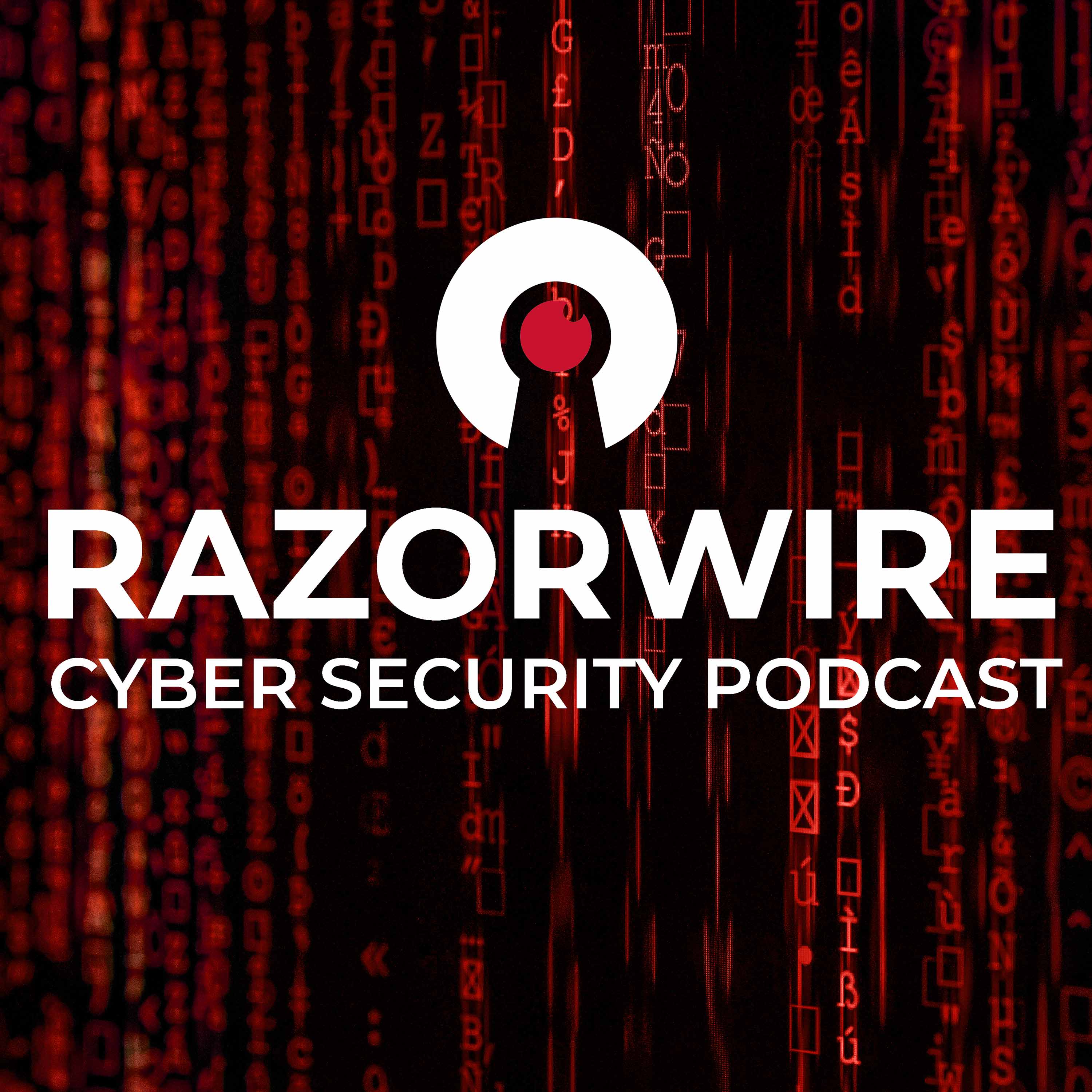The Psychological Toll of Working in Cybersecurity - When You Can't Unsee What You've Seen
Are you prepared for the psychological toll that comes with handling disturbing content in the cybersecurity world?
Welcome to Razorwire, where today we’re exploring into the realities behind a career in cyber, from technical warfare to the often-overlooked human cost.
In this episode, I’m joined by therapist and consultant Eve Parmiter to examine the real psychological impact of repeated exposure to distressing material that many of us face during incident investigations, content moderation and threat research.
Eve draws on her background in trauma therapy and real-world experiences both inside and outside of cybersecurity. Together, we discuss why even seasoned professionals struggle to talk about their experiences, how secondary trauma manifests in our daily lives and what can actually help in environments that don’t provide enough support.
If you've ever had to investigate colleagues, review disturbing material, or make impossible decisions under pressure, this conversation will resonate. We don't shy away from hard truths, but we do focus on practical ways to build resilience and find some measure of satisfaction in doing the right thing - even when it's difficult.
In this episode:
1. Understand the true impact of secondary trauma in cyber roles.
We break down the difference between stress, burnout and trauma specific to cybersecurity professions, exploring how exposure to disturbing content changes your outlook - and why it’s not a personal weakness.
2. Learn why most pros don’t talk about their struggles and how to break the silence.
Eve explains why lacking the right language keeps many from processing what they experience and offers insight into building peer support systems and practical organisational responses.
3. Discover tested strategies for coping and recovery.
You’ll leave with actionable advice straight from the worlds of therapy and cyber on how to protect yourself, when to seek help and the importance of cultivating supportive communities.
Tune in for a genuine, valuable discussion that puts the mental health of cybersecurity professionals front and centre and find out how to make a tough job more sustainable for yourself and your team.
Why Self Care Isn't Enough for Trauma
"You can't self care your way out of trauma. There is no amount of bubble baths or ice baths that are going to remove certain images or certain experiences."
Eve Parmiter
Listen to this episode on your favourite podcasting platform: https://razorwire.captivate.fm/listen
In this episode, we covered the following topics:
- The Psychological Impact of Difficult Materials. Why exposure to traumatic or distressing digital content leads to anxiety, depression and long term negative outlooks.
- Challenges Discussing Trauma in Cybersecurity. How professionals can overcome their reluctance to discuss experiences when they lack the language or organisational support.
- Primary vs Secondary Traumatic Stress. Learn how to identify when direct and indirect exposure to disturbing content creates real psychological effects that often resemble PTSD.
- Addressing Vicarious Trauma and Worldview Shifts. How to cope when repeatedly witnessing other people's trauma changes how you perceive the world and interact with your environment.
- Moral Distress and Injury in Decision Making. Find out how to manage situations where you face ethical dilemmas with no clear 'right' choices.
- Overcoming Isolation in Infosec Roles. Learn ways to tackle the solitary nature of many cybersecurity positions and find methods for sharing and processing difficult experiences.
- Building Organisational Support Structures. Explore how to create better support systems, clearer policies and access to therapy or community resources for those regularly exposed to harmful material.
- Implementing Practical Coping Strategies for Daily Exposure. How using visual and audio moderation tools can reduce the impact of reviewing distressing content.
- Building Resilience and Finding Meaning. How community, positive reinforcement and focusing on 'doing good' help professionals recover and maintain motivation.
- Resources for Mental Health in Cybersecurity. Find organisations and peer networks dedicated to improving mental health for cybersecurity professionals.
Resources Mentioned
Connect with your host James Rees
Hello, I am James Rees, the host of the Razorwire podcast. This podcast brings you insights from leading cyber security professionals who dedicate their careers to making a hacker’s life that much more difficult.
Our guests bring you experience and expertise from a range of disciplines and from different career stages. We give you various viewpoints for improving your cyber security - from seasoned professionals with years of experience, triumphs and lessons learned under their belt, to those in relatively early stages of their careers offering fresh eyes and new insights.
With new episodes every other Wednesday, Razorwire is a podcast for cyber security enthusiasts and professionals providing insights, news and fresh ideas on protecting your organisation from hackers.
For more information about us or if you have any questions you would like us to discuss email podcast@razorthorn.com.
If you need consultation, visit www.razorthorn.com. We give our clients a personalised, integrated approach to information security, driven by our belief in quality and discretion.
LinkedIn: Razorthorn Security
YouTube: Razorthorn Security
TikTok: Razorwire Podcast
All rights reserved. © Razorthorn Security LTD 2025


